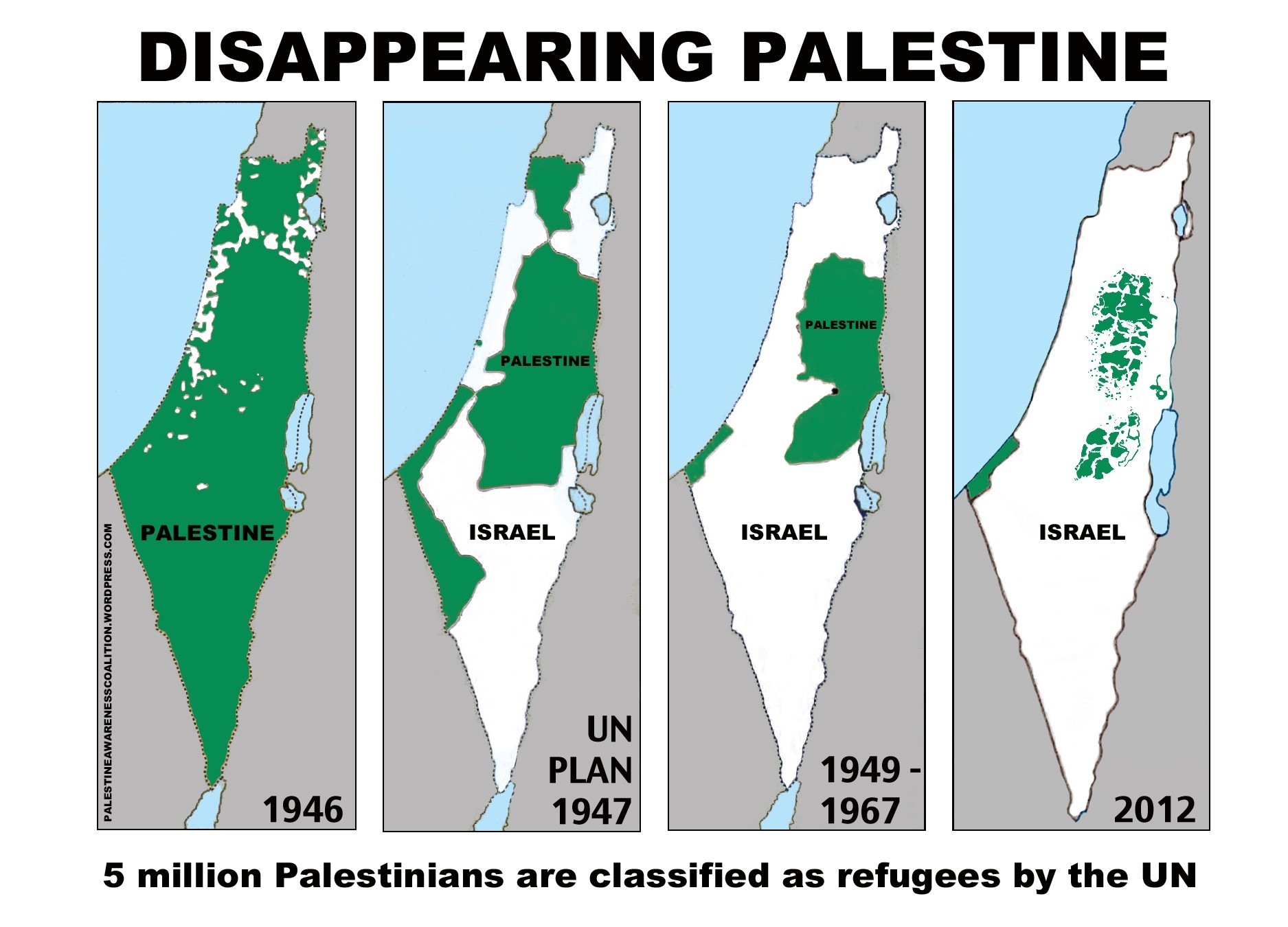Despite the Obama Administration’s refusal to veto the December 2016 adoption of UN Security Council Resolution 2334, which reaffirmed that Israeli settlements in the Occupied Palestinian Territories constitute a flagrant violation of international law, there has been a continuing and substantial increase in the construction and expansion of illegal settlements in the West Bank.
More recently, since mid-July 2017 there has been an escalation of violent clashes and hateful rhetoric with protests and reprisals focused around the Haram al Sharif/Temple Mount areas, a site sacred to both Muslims and Jews. The Global Center for the Responsibility to Protect has even included this situation on its Atrocity Alert listing, warning, “it is essential that both Israel and the Palestinian Authority condemn anti-Semitic and anti-Palestinian hate speech and incitement to violence.”
Meanwhile in US Congress, a bill that would criminalize support for Boycott Divestment Sanctions (BDS) of Israel picked up 45 co-sponsors in the Senate and 240 in the House. According to CAIR, “The Israel Anti-Boycott Act (S. 720 / H.R.1697) is a threat to the free speech of all Americans and is clearly unconstitutional. The act would charge those American business owners and individuals who participate in the Boycott, Divestment, and Sanctions (BDS) movement with criminal penalties resulting in up to 20 years in prison and a $1 million fine.”
This absurd level of over-reaction seems to reflect a profound level of paranoia among some Israelis and US supporters of Zionism. This way of thinking conflates boycotts with anti-Semitic hatred and even with a support for the violent destruction of Israel.
But why do some people still call for the destruction of the State of Israel? Is Justice really a “zero sum game” providing the keys to some imagined state of grace and purity, and a return to the social order before the Israeli occupation? Can such a longed-for, if partly imaginary, home for Palestinians be restored or even manufactured, just as the Jewish State and society have been rebuilt and redesigned in the Zionist project?
Any actions that would cause widespread displacement and suffering should be avoided. As the saying goes, “Two wrongs don’t make a right.” Muslims really cannot call for the destruction of any people, whatever crimes their elected government may have perpetrated over the years.
Muslims can and should however engage more seriously in the struggle for justice, which requires commitment to equal rights and mutual respect, repayment as well as restoration of some properties. Human justice is inevitably imperfect, but with sincere efforts, a sense of trust can make compromise acceptable. We can free ourselves from a tribalism that stifles the heart and soul. Conflict de-escalation starts when we stop yelling and exaggerating and start listening to each other.
But instead, rumor mongering on all sides increases the level of fear and existential panic and this in turn supports a divisive and reactionary political discourse. Leaders build careers based on dividing people, not on peace-making. The state becomes a fortress, or a disaster zone. Warfare continues to target civilians. Violence and hatred are normalized. Apartheid restrictions are constructed to maintain the divisions in the name of “security” and these inhuman barriers exist parallel to family life, the quest for knowledge and cosmopolitan culture. Soon taxpayer-funded technology hardens these social barriers and it becomes difficult to find a door to the walls being constructed around us.
This is happening in the USA and elsewhere too. Some of the poison is spreading from the Israel/Palestine. On one side, Arab anti-Semitism has been encouraged by regimes throughout the Middle East to shore up support against the “Zionist entity.” On the other hand, growing anti-Muslim hostility among some Jews has helped fuel the resurgence of Islamophobia in Europe and the USA. A significant percentage of US Islamophobes writing and speaking today are right wing Jews. The Islamophobic industry adds fuel to a fire that is already smoldering underground and threatening to spread around the world.
I will share just one example relevant to the current Al Aqsa protests. Simplifying previous histories of Jerusalem, Mr. Mordecai Kedar writes in Zionist publications such as Arutz Sheva and Morehasbara.com to “prove” that the Al Aqsa mosque is theologically insignificant in Islam and that Muslim claims to the Haram al Sharif are politically motivated. While the historical record is somewhat complex, Mr. Kedar works to make sure it illustrates his points that the Muslim claim is weaker than the Jewish claim to the site. Again, we are left with a “zero sum game” with “winner take all” rules.
The current arrangement of sharing the site is a compromise among governments. Extremists dislike compromise. And when trust is lacking there are moments when each side suspects that the other wishes to destroy the other. A first step is to deny the other’s historical claims.
In this case Mr. Kedar claims that the mosque was not the “farthest mosque” referred to in the Quran but rather was built by the Umayyads to solidify their own claims on Jerusalem, some forty years after the death of the Prophet. Mr. Kedar claims that the “farthest mosque” was actually located in a small town in Saudi Arabia. However, he overlooks a prevailing interpretation that says the Prophet’s miraculous journey to the “farthest mosque” was entirely visionary. The association with Jerusalem seems to have extended almost to the Prophet’s time and the site was developed to be a magnificent complex in 715. And yet Mr Kedar claims that the during its stewardship of the site in the 1960s the Jordanian Tourist authority left al Aqsa off their maps, thereby indicating its lack of significance. This is a laughable argument—it is more likely that the site was off limits to non-Muslim tourists, or seen as a sensitive area because it was the location of the assassination of Jordanian King Hussein’s grandfather less than 15 years before.
It may well be true that the relative importance of Jerusalem has expanded and contracted over the centuries—some sultans perceived its strategic and religious value, and others did not. By the mid-19th century Jerusalem was a shabby, garbage-filled town of only 9,000 residents.
History is not myth. It does not exist to illustrate a theory or a founding narrative. History is a dialogue and a debate and a series of questions. Muslims and Jews both need to engage in honest historical study free of the constraints of ideology.
How are we to help Israelis free themselves from this nightmare of endless insecurity? How do we help Palestinians not only find and accept human justice but move past politics based on emotional and tribalistic reaction? And, finally: what is the path to peace?


Posted By: Adem Carroll
Adem Carroll is currently New York and United Nations Program Director for Burma Task Force USA. With a background in human rights advocacy, Adem worked for five years for Islamic Circle of North America (ICNA Relief) after the 9/11 terror attacks. There he directed a program providing emergency legal and financial help to over 825 detainees and their families after 9/11. Adem was also founder of Muslim Consultative Network (now called Muslim Community Network) in late 2003 and served as Chairman and later as Executive Director, directing the Nafis Salaam anti-smoking program for Muslim community in partnership with Islamic Medical Association of North America. Adem is or has been an active steering committee member of several interfaith coalitions, including the Metro New York Religious Campaign Against Torture; the Flushing Interfaith Council; and New York Disaster Interfaith Services. He has worked as a visiting professor and written papers for conferences including the Duke-UNC Graduate Islamic Studies Conference and International Center for Ethno-Religious Mediation (ICERM) conference. He writes also for Muslim publications and served as producer of Global Movements Urban Struggles on WBAI radio from 2004 through 2014.